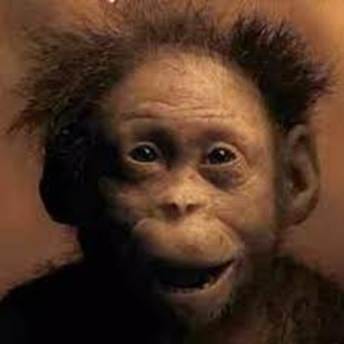I write historical fiction. My first novel was set in Elizabethan times. It languished in a drawer for twenty five years before I published it. Some authors concerntrate on definite time periods. I never have. My first published novels were set in the years after the Norman Conquest. Then one set in the Third Crusade, one about the Artful Dodger and then a sudden swerve to Tudor England.
My next novel charged to Crete of 4,000 years ago. Then a lengthy visit to the time of Alfred the Great and the Viking invasions of England followed by five novels set in the Second World War.
I’m a bit of a madcap time traveller.
One leap year I set the members of my writing group the subject Leap. My story was historical but far earlier than anything else I had written. It was inspired by a picture my wife showed me.
I hope you like it.
LEAP
For all three years of her life Dikika had known nowhere other than her forest. Her father told her that their family had owned the forest for generation upon generation and that if anyone walked there, they were interlopers and should be politely escorted away.
On occasion her family had taken her to the far margins of the forest where the trees huddled close together, gnarled, stunted and twisted, every one of them throttled with dark green creepers, every branch laden with vivid, greasy leaves. It was dark and gloomy, with a stifling heat and no hint of wind.
Here the forest was smothered with a smell she did not like, in fact one which sickened her. It was rank and cloying, stuffing her mouth and nose as if with mud. And the noises throbbing all around were terrible and alarming. The fierce cries of hunting birds, the angry roar of brute and savage beasts, the constant hum and moan of insects great and small. She loathed the place and was always grateful when they returned home.
Her part of forest was lovelier by far. There were fewer trees and they grew a little apart from one another, without crowding, without competition. Air wafted more freely, the sun trickled amongst the leaves and she was able to glimpse distant trees and plants. And there were rainbows of scents. The rich mulch of the ground, the heady shot of pine, the lulling aroma of sandalwood and herbs.
There were animals in this part of the forest, of course. She knew them well and none alarmed her. Songbirds weaved spells in the sky, squirrels scurried along branches, golden monkeys knocked nuts upon the tree trunks and gibbon acrobats performed as if they were on show.
She was a lucky girl and she knew it.
Sometimes in the night, however, she would wake to hear a snuffling noise in nearby branches, a heavy breathing as if some inquisitive person was pressing their snout into her family’s business. But then her mother would cuddle her and she would drift back to sleep.
Then, one dawn, her life was changed utterly.
She heard a growl above her head, a vicious, angry snarl. She looked up and saw a creature, long, lean and mottled, yellow and black. It crawled upon the branch towards her, its long tongue licking hungrily. She looked around in terror, the rest of her family were still asleep and none had heard the noise.
The creature jumped towards her; its mouth ready to bite. Her father rushed in front of her, thrust his arm into the creature’s mouth and howled as it clamped its jaw shut.
‘A leopard,’ he cried. ‘Run child, run.’
She watched in horror as the leopard slashed her father’s chest, wept at hearing his dying shriek.
She took one step along the branch and then another. And then, closing her eyes, she leapt.
She hit the ground. It was not a place for an ape-girl to be - she was a creature of the trees. But father had told her to run. And run she did.
No longer an ape-girl, although not yet human. She leapt from the terror in the trees and into the future.




